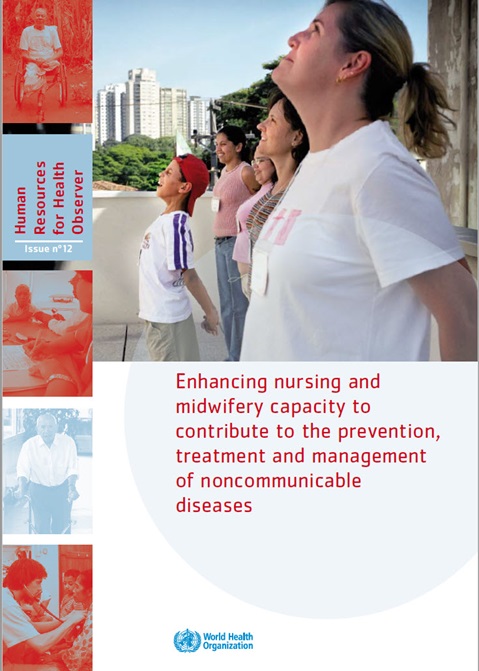Enhancing nursing and midwifery capacity to contribute to the prevention, treatment and management of noncommunicable diseases
Human Resources for Health Observer Issue 12

Overview
The global burden of noncommunicable diseases is already high and continues to grow in all regions of the world. Given this trend, it is important to scale up action to improve the education and practices of health workers. In most countries, nurses and midwives account for more than 50% of health-care providers, representing the largest group who can make significant contributions to prevent and treat noncommunicable diseases. As professionals, nurses and midwives have the expertise to build on the strengths of individuals and communities to improve health outcomes. This expertise is vital to address and manage the complex risks that contribute to the global burden of noncommunicable diseases.
This document discusses specific interventions in the areas of policy, advocacy, research and education and practice, and the roles that nurses and midwives play. The evidence outlined in this document provides an important reference point for policy-makers, researchers, educationists, nurses and midwives, and other health-care workers. It is anticipated the presented information will stimulate interest and action to enhance the capacity of these health workers to respond effectively to noncommunicable diseases.
